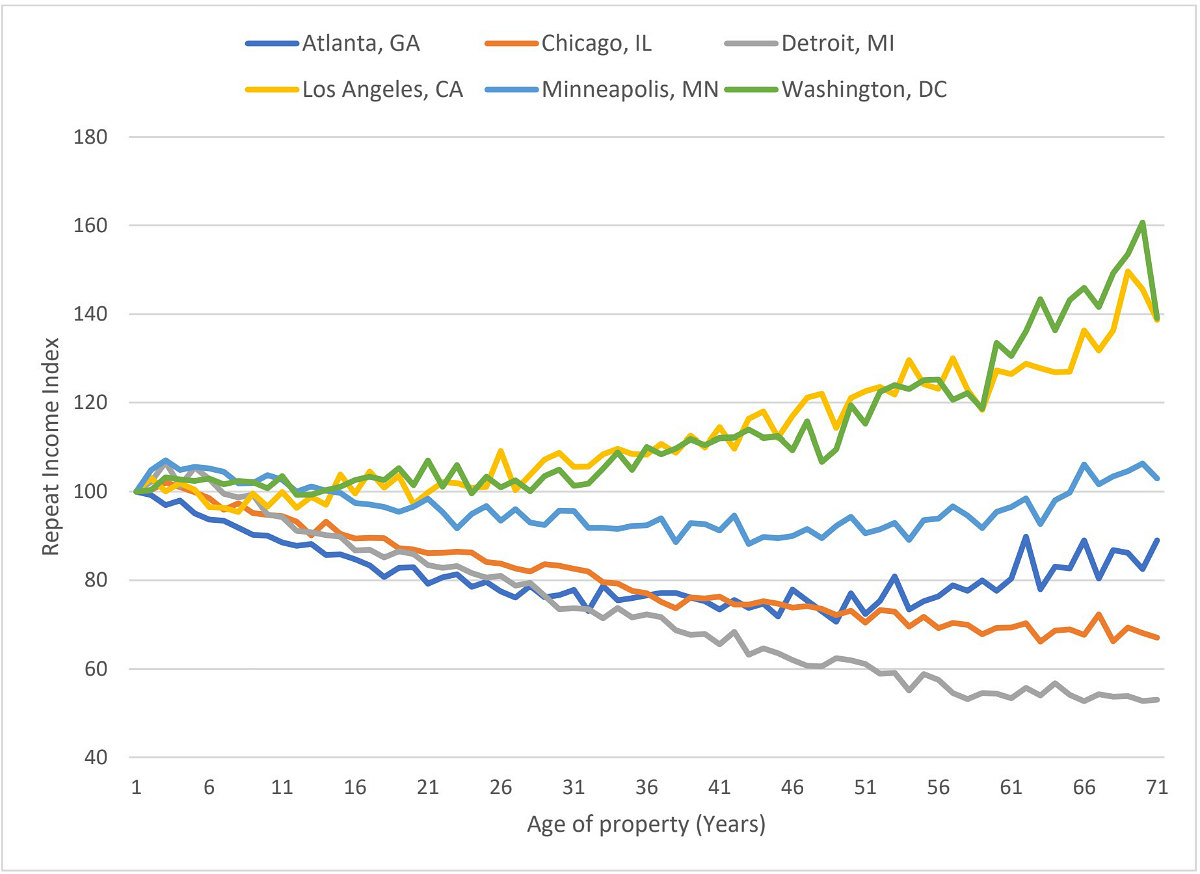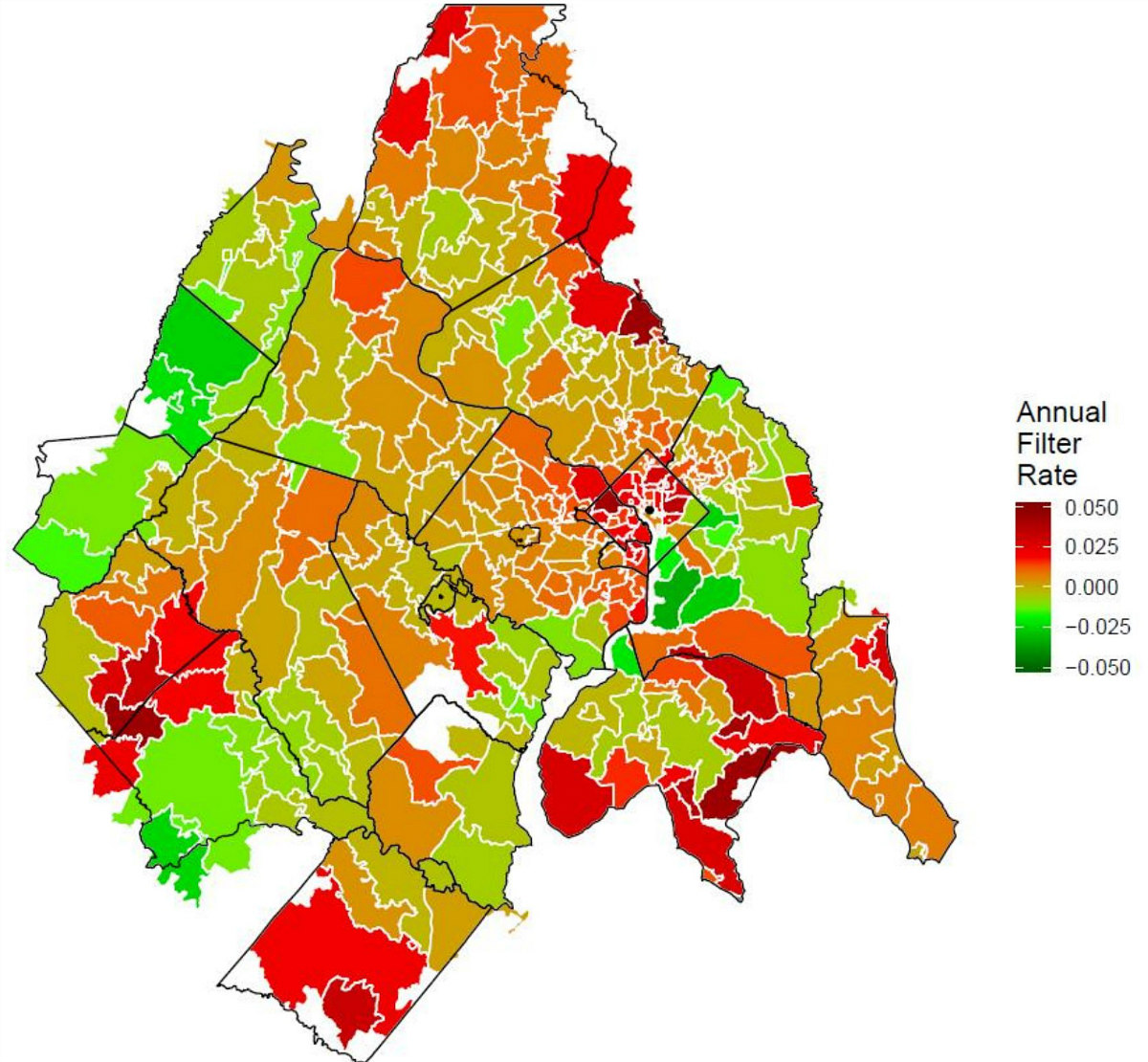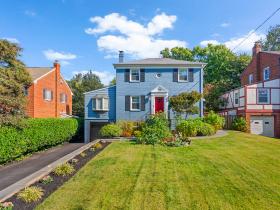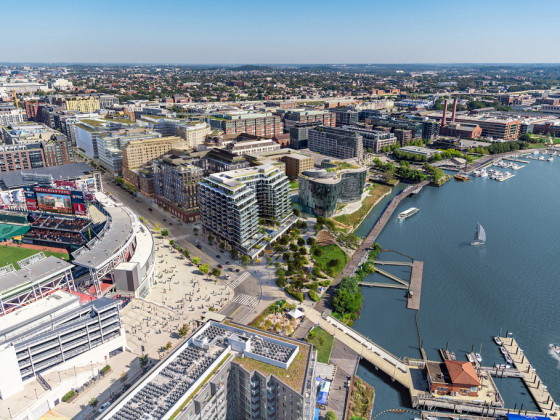What's Hot: Did January Mark The Bottom For The DC-Area Housing Market? | The Roller Coaster Development Scene In Tenleytown and AU Park
 How "Filtering" Affects the DC-Area Housing Market
How "Filtering" Affects the DC-Area Housing Market
✉️ Want to forward this article? Click here.
As the nationwide housing crisis sparks more conversations about affordability, many have challenged the notion that older housing stock naturally becomes more affordable as it ages compared to new construction. A new study shows that DC is one of the cities where this is not necessarily happening.
Freddie Mac recently published a paper that explores the concept of "filtering", or how the depreciation of older housing stock in a competitive market makes older units more affordable. A property is defined as "filtering down" when, for every time it changes ownership, the new household earns less income than the prior household*.

Downward filtering holds true nationwide, with household income falling by 16% over the last 40 years. In the DC area, however, for-sale housing filtered upward by 12% in the same span. In other words, current homeowners in the DC area earn an average of 12% more than the household that originally owned and occupied the property in the 40-year period.
story continues below
loading...story continues above

Upon closer examination, most of the upward filtering in the DC region is concentrated in northern Virginia and DC proper, particularly west of the Anacostia River. Upward filtering is most intense in the 20002 zip code, which encompasses neighborhoods like Union Market, the H Street Corridor, and the Northeast part of Capitol Hill. Meanwhile, housing filters downward in the 20019 and 20032 zip codes that include Congress Heights and Deanwood.
Filtering is relatively flat across lower Montgomery County, although Takoma Park has the highest filtering rate of any of Maryland's zip codes abutting DC proper. Most of Prince George's County experiences flat or downward filtering, although housing does filter upward slightly around the Hyattsville area and more noticeably in the zip codes that cover Bowie, Brandywine, and Acokeek.
The study notes that supply can affect the overall affordability of a market, and suggests that more permissible zoning can improve the chances for downward filtering.
"While supply elasticity does not appear to have much effect after controlling for house prices, [metropolitan statistical areas] where housing supply is inelastic have higher house price growth on average, which in turn affects filtering. If the barriers to new supply are caused by restrictive land use and zoning regulations such as limiting construction to single-family properties, imposing building height limits, requiring minimum lot sizes, or subjecting development to discretionary approval processes, then perhaps relaxing these restrictions would be an effective strategy for increasing affordable housing."
The study uses data for owner-occupied single-family houses, townhouses, and condos built after 1900 and sold via Freddie Mac mortgages between 1993 and 2018. Tear-downs, properties priced over $3 million, and properties purchased by households with monthly incomes less than $1,000 or greater than $99,999 per month, were excluded.
*For example, the 2014 study whose methods informed the Freddie Mac study found that nationwide, housing filters down by 0.7% annually, or that, over the course of 50 years, a new household earned 30% less.
See other articles related to: freddie mac, housing affordability, owner-occupancy
This article originally published at https://dc.urbanturf.com/articles/blog/how-filtering-affects-the-dc-area-housing-market/16478.
Most Popular... This Week • Last 30 Days • Ever

As mortgage rates have more than doubled from their historic lows over the last coupl... read »

The small handful of projects in the pipeline are either moving full steam ahead, get... read »

Lincoln-Westmoreland Housing is moving forward with plans to replace an aging Shaw af... read »

The longtime political strategist and pollster who has advised everyone from Presiden... read »

A report out today finds early signs that the spring could be a busy market.... read »
DC Real Estate Guides
Short guides to navigating the DC-area real estate market
We've collected all our helpful guides for buying, selling and renting in and around Washington, DC in one place. Start browsing below!
First-Timer Primers
Intro guides for first-time home buyers
Unique Spaces
Awesome and unusual real estate from across the DC Metro














